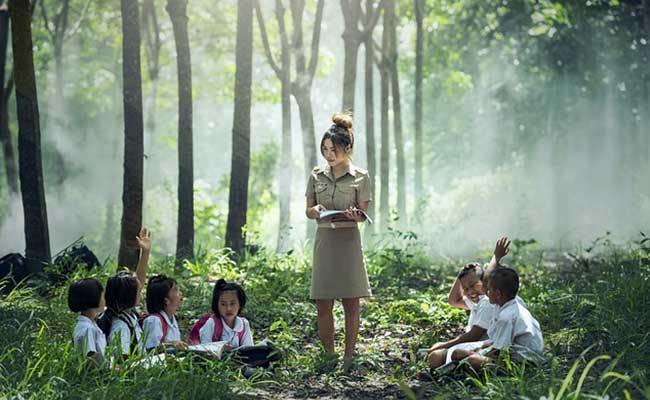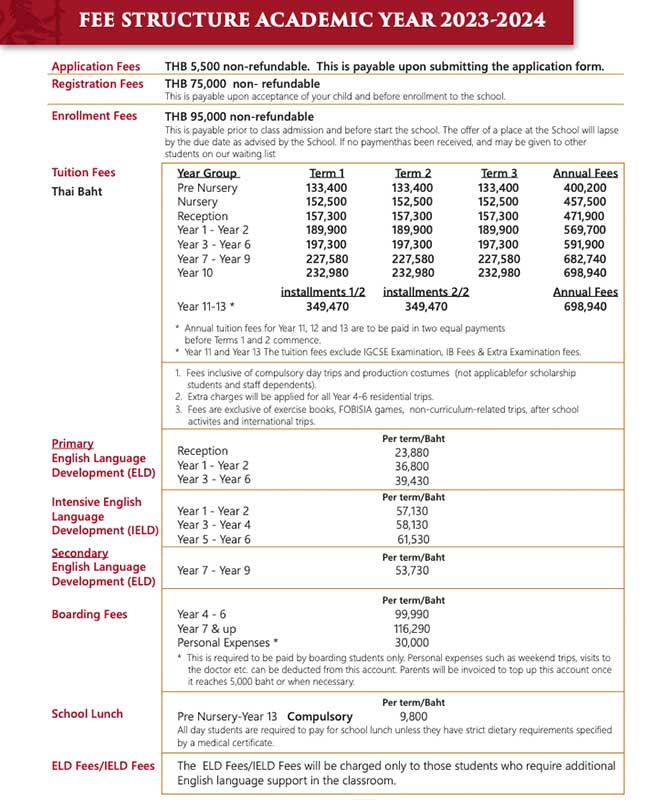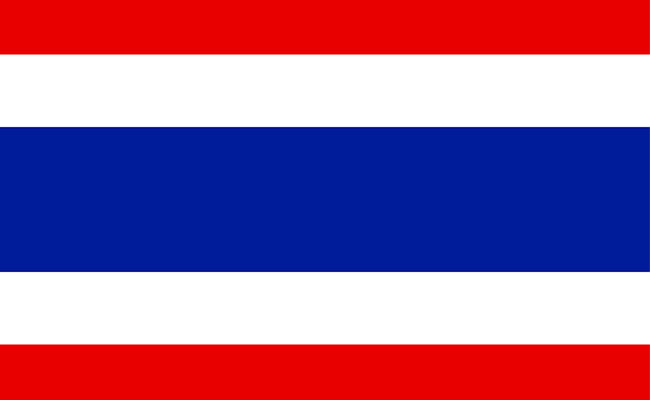For a family relocating to the Land of Smiles, or an expat married to a Thai national, one of the most critical considerations is the education of their children.
Thailand boasts a dynamic education system that offers a range of options, from government schools to private institutions and international schools. In this article, I delve into the multifaceted Thai education landscape, exploring the schooling choices available to your children.

Kindergartens and Preschools in Thailand
In Thailand, government schools provide two years of kindergarten for children aged 3 to 4, along with one year of preschool for 5-year-olds. These programs are part of the country's standard educational system and are offered at no cost to Thai citizens. These early years are not mandatory, yet they remain popular among parents.
Private and international schools in Thailand also offer similar early education programs, usually starting at age 3. These schools charge tuition fees, but provide various benefits such as smaller class sizes and a more diverse, international curriculum.
Popular Kindergarten's in Bangkok include Regents, Wells, RBIS, Bangkok Pattana, Apple Tree, The Ivy School, Little Maple, ELC, and Ruamrudee.
Private and international schools may also offer a baby and toddler program designed for children from as young as 8 months and up to 3 years old. This is usually very affordable, and a way of introducing prospective parents to the school campus, culture, and mission.
For example, Regents International School's baby and toddler program is based upon a learning-through-play approach that focuses on involving families in their children’s learning and development.
Early childhood education in Thailand is viewed as essential for giving children a head start in their academic journey. It equips them with crucial foundational skills and prepares them for the formal education system, which begins at age 6.
In a society where both parents frequently work, kindergarten and preschool programs also serve as a practical solution for childcare. Parents can have peace of mind knowing that their children are in a supervised and educational environment.
Education in Thailand lasts for nine years, consisting of primary, prathom (ประถม) (grades P1-6), and lower secondary, matthayom (มัธยม) (grades M1-3), starting at the age of 12. Compulsory education ends in matthayom 3 (grade 9), at 13 years old.
Government Schools
In Thailand, government schools offer free education to all Thai citizens, regardless of their economic background. It's worth noting that this inclusive policy extends to children with at least one Thai parent, which means that if you have a child with a Thai citizen, your child is eligible for a free education at a government school.
Thai people will readily tell you that when it comes to a government education, “free” is somewhat of an overstatement. While the core education is indeed free, there are associated costs that parents should be aware of.
These expenses usually include payment for textbooks, stationary and uniforms, and often miscellaneous fees tagged on by the school. Annual “fees” can cost anywhere from 3-15,000 Baht, depending on the school.
Moreover, when compulsory education ends, schools do charge a fee. This is usually upwards of 2,500 Baht per term, with the fee dependent on the area of the country and the reputation of the school. This financial burden means that children from poorer families often leave school at 13, opting to work and support their family instead of furthering their education.
One notable feature of many government schools is an English program. This means that students have the opportunity to learn English, which is usually taught by native-speaking teachers. Don't, however, rely on an English program to advance your child's English speaking skills to a proficient level. The quality and extent of the program will vary between schools. Additionally, after-school classes may be offered to further enhance language proficiency and academic skills.
It's important to acknowledge that, like any educational system, government schools in Thailand have their unique challenges. Among the most common issues are hot classrooms (no air-con, leading to lower concentration levels), overcrowded classes and lower teaching standards. Some also complain about too much emphasis on outdated traditions. However, it would be an oversimplification to dismiss all government schools based on these challenges.
Some government schools in Bangkok, such as the renowned Triam Udom Suksa, Bodindecha co-ed, Satriwittaya (girls), and Suankularb Wittayalai (boys), are highly sought after due to their excellent reputation.
Private Schools
In Thailand's educational landscape, private schools stand as an alternative to government schools. Unlike government schools that are funded by the state, private schools rely on tuition fees to support their operations. This financial independence enables private schools to provide enhanced facilities and smaller class sizes, addressing some of the challenges often associated with government schools.
For parents seeking a Thai-style education enriched with improved resources and personalized attention, private schools present an attractive option. These institutions maintain the Thai curriculum, ensuring that students receive a solid foundation in the country's culture and educational standards.
Private schools often prove to be a cost-effective choice for parents seeking quality education within a reasonable budget. They provide many benefits similar to international schools, such as improved facilities and smaller class sizes, but without the hefty price tag associated with international education.
One highly sought after school is the Mater Dei School, a private Catholic girls school in Bangkok run by the Sisters of the Ursuline Order who founded the school in 1928. Its most famous alumni is the late King Bhumibol Adulyadej, who attended when they allowed boys in.
For boys, one might consider the renowned Assumption College, a Roman Catholic all-boys private school in Bangkok.
You may note that most of the top private schools in Bangkok are linked to the church. This is because Christian missionaries founded many schools. For example, American Presbyterian missionaries established the highly regarded Bangkok Christian College in 1852.
It's important to note that most subjects at private schools are taught in Thai, which can pose challenges for non-native Thai-speaking students, including expatriate children. To accommodate diverse linguistic backgrounds, many private schools offer English programs that include core subjects like math and science taught in English. While these English programs provide a valuable opportunity for expat students, they typically come at an additional cost.
International Schools
In Thailand, international schools offer a distinctive educational journey that diverges from the country's national curriculum. These schools adhere to curricula originating from various corners of the globe, including the United Kingdom, the United States or dedicated international programs like the International Baccalaureate (IB).
You can see a comprehensive list of international schools in Bangkok here. Among the best are Patana, ISB, NIST, Regents, Wells, Ruamrudee, Harrow, and Shrewsbury – the latter two are affiliated to top British private schools of the same name.
The primary purpose of international schools has always been to provide a seamless educational experience for the children of expatriates residing in Thailand. However, over time, they have evolved into an appealing choice for Thai families too. One of the key attractions is that these schools grant students access to a prestigious international education without the need to relocate abroad.
International schools in Thailand are driven by a commitment to delivering education on par with the world's top institutions. To achieve this, they typically boast top-notch facilities and employ highly qualified teachers – usually headhunted and recruited from abroad.
Consequently, tuition fees at international schools tend to be on the higher side, with annual costs reaching as much as 800,000–1m Baht at some of the most esteemed establishments. Nevertheless, there are less expensive options available, providing families with various choices to align with their financial considerations. See the fee table from Regent's International School in Bangkok below. This is typical of the pricing you will encounter for international schools in Bangkok.
For many expatriate families, international schools often emerge as the preferred educational option. These schools predominantly conduct classes in English, enabling students to immerse themselves in an English-speaking environment while also incorporating compulsory Thai language lessons. Additionally, students have the opportunity to earn qualifications that hold value in their home countries, such as GCSEs/A-Levels at British schools and SATs at American schools. Modern sports and music facilities tend to be a key draw for expat parents, too.

University
Thailand may not always be the first destination that comes to mind for Westerners seeking higher education; indeed, only Chulalongkorn University and Mahidol rank in the top 250 of the QS (Quacquarelli Symonds) chart – QS is the world’s leading provider of analytics and insight to the global higher education sector. Chiang Mai is third best in Thailand, followed by Thammasat, and Khon Kaen.
However, studying abroad is an alternative educational and cultural experience that is valued by many global employers. Not to mention that higher education in Thailand is very affordable when compared to the West. Thai universities, in comparison to their Western counterparts, offer courses for as little as 15,000 Baht per term.
That being said, while tuition fees may be modest, the requirements for enrollment in the aforementioned universities are typically rigorous. The Thai government funds these universities but they operate independently, maintaining high academic standards.
For those seeking programs in English, the top universities also offer English-taught courses, although these programs may come with slightly higher tuition fees.
In addition to government-funded universities, private institutions like Bangkok University and Assumption University provide English-language programs.
Homeschooling
Homeschooling is a growing educational trend worldwide, and Thailand is no exception to this phenomenon. Families in Thailand, both expatriate and local, have increasingly turned to homeschooling as an alternative to traditional school settings. This trend increased in popularity post the COVID period, when many children were left without adequate schooling.
As with any educational approach, homeschooling comes with its set of upsides and downsides, and it's essential for parents to consider both aspects when deciding if homeschooling is the right fit for their children in Thailand.
The Upsides of Homeschooling
1. Customized Curriculum
Homeschooling allows parents to tailor the curriculum to meet their child's individual needs, interests, and learning styles. This flexibility can lead to a more personalized and effective educational experience.
2. Flexible Schedule
Homeschooling provides the freedom to create a flexible daily schedule, accommodating travel, cultural exploration, or other unique learning opportunities in Thailand. This adaptability can be especially appealing for expatriate families.
3. Strong Family Bonds
Homeschooling often strengthens the bond between parents and children as they engage in the learning process together. It allows for meaningful family interactions and shared educational experiences.
The Downsides of Homeschooling
1. Limited Social Interaction
One of the most significant concerns is the potential for reduced socialization opportunities for homeschooled children. Traditional schools provide a structured environment for social interaction with peers, which homeschooling may not replicate.
2. Curriculum Challenges
Homeschooling requires parents to take on the role of educators, which can be demanding, especially if they are not experienced teachers. Sourcing appropriate curriculum materials can also be challenging in a foreign country.
3. Lack of Accreditation
Homeschooling in Thailand may not be officially accredited, which can impact future educational opportunities, such as admission to international schools or universities, both locally and abroad.
4. Parental Commitment
Successful homeschooling demands a significant commitment of time and effort from parents. Balancing work, household responsibilities, and teaching can be challenging.
5. Limited Extracurricular Activities
Homeschooled children may have fewer opportunities to participate in organized extracurricular activities such as school trips, sporting events, and clubs compared to their peers in traditional schools.
——-
What About You?
Does your child attend school in Thailand? Leave your experience below to help other parents make a decision on what's best for their child. Are you a parent looking at schools and need some advice? Join the conversation below and leave your questions for other readers to help you out.
Tips for a Better Life in Thailand
Get Good Health Insurance:
Start with a quick quote here from Cigna. Then you can compare it to other companies.
Send Money to Thailand:
If you are sending money to your loved one, or your own Thai bank account, try Wise here. It is fast and cheap. Me and the majority of my readers are using it.
Improve Your Thai Skills:
Learning Thai makes life easier, and way more fun. I use Thaipod101. Get a free account by clicking here. It is really easy to use.
Last Updated on



Frank says
Oct 25, 2024 at 2:35 pm
TheThailandLife says
Oct 25, 2024 at 7:04 pm
Erwin says
thank you
Oct 29, 2023 at 10:02 pm